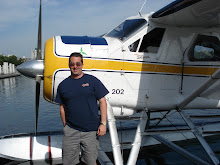Col Emil “Ted” Sturmthal 1929-1982

This is the sixth flight of the first prototype of the B-1 taken on April 10, 1975 It is signed by the Flight Commander Charlie Bock, the Pilot Ted Sturmthal and the Flight Engineer Richard Abrams.

Colonel Emil “Ted” Sturmthal, B-1 Joint Test Force Project Director, co-piloted the first flight of the B-1 on December 23, 1974. He went on to fly the B-1 on its initial six flights, taking it to supersonic speeds for the first time and conducting many other flight tests vital to the development of the aircraft. Sturmthal flew the B-26 in Korea and was Commanding Officer of the 460th Tactical Reconnaissance Wing in Vietnam (1969-1970) where he flew 196 combat missions. He graduated from the USAF Test Pilot School at Edwards Air Force Base in 1959. At Edwards, he served as Chief of Flight Test of the Air Force Logistics Command (AFLC) Project Group, Chief of the Bomber-Transport Section and Assistant Chief of the Flight Test Operations Division. He also flight tested the then-secret RB 57F reconnaissance aircraft from 1962-1966, completing its first flight. He served as project pilot on the T-37B, Navy C-130BL, B-52H, B-58 flight control modification program and was one of seven pilots to fly the triple sonic XB-70. After retiring from the Air Force in 1978, he joined Flight Systems, Inc. as Director of Commercial Aircraft Programs. Sturmthal’s fascination with flight began in childhood. He got his first plane at the age of 15 and learned to fly with the Civil Air Patrol. He developed an interest in becoming a test pilot even before he earned his Air Force wings, but the road wasn’t easy. Sturmthal wore thick glasses, an almost insurmountable obstacle for a military pilot. Undaunted, he flew his own airplane to DC and personally asked General Vandenberg for a waiver. His request was granted and he became the first pilot to go through pilot training with eyeglasses. A Fellow of the Society of Experimental Test Pilots, Sturmthal’s decorations include the Legion of Merit, Bronze Star, Distinguished Flying Cross, Meritorious Service Medal, Octave Chanute and 11 Air Medals. By 1976 he had logged almost 8,000 hours of flying time in more than 50 kinds of bombers, transports, trainers, fighters and reconnaissance aircraft including the, B-52, British Vulcan, British SST Concorde, F-111, F-100, C-130, T-37B, B-26 and B-57 as well as more than 4,000 hours in civilian aircraft.




<< Home